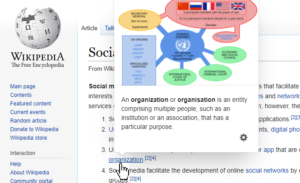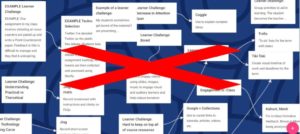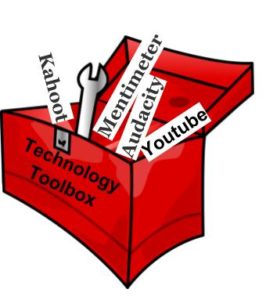 For this multimedia reflection, Aaron Vieira and I decided to take a new approach and try out a podcast. This was probably the most fun I’ve had making a multimedia reflection for this class. I’ve always been a guy who never really enjoyed reading, so podcasts are ways to get the same information but through a different medium.
For this multimedia reflection, Aaron Vieira and I decided to take a new approach and try out a podcast. This was probably the most fun I’ve had making a multimedia reflection for this class. I’ve always been a guy who never really enjoyed reading, so podcasts are ways to get the same information but through a different medium.
The back and forth dynamic added a new element to my reflection. Just being able to have a conversation about my thoughts and ideas felt like I have learned more from reflecting. Aaron was able to bring up some great points that I would have never thought of and I appreciated this aspect. There were times where just listening to Aaron gave me a new idea or a new way of looking at the problem. For these reasons and many more, I would recommend a podcast to all my peers as it is a great way of reflecting.
 The podcast starts with us speaking about our first impression of the site. I found it really difficult to follow at first because they started with a general video but it was very general. I believed that their overview section could have been done much better just by simply stating the goal of the module, who it was directed too, and why it is important. A big issue for me was their use of hyperlinks.The first definition they give for “digital literacy” was a link to a 274-page paper about digital literacy. I expressed my concern about sending the reader “down the rabbit hole” where they get overwhelmed by the amount of provided content. A great way to avoid this with hyperlinks is the use of popup widgets directly on the page. This is similar to what Wikipedia does, where instead of opening the link and scrolling through to find the desired information, it pops up when you hover your mouse over the link.
The podcast starts with us speaking about our first impression of the site. I found it really difficult to follow at first because they started with a general video but it was very general. I believed that their overview section could have been done much better just by simply stating the goal of the module, who it was directed too, and why it is important. A big issue for me was their use of hyperlinks.The first definition they give for “digital literacy” was a link to a 274-page paper about digital literacy. I expressed my concern about sending the reader “down the rabbit hole” where they get overwhelmed by the amount of provided content. A great way to avoid this with hyperlinks is the use of popup widgets directly on the page. This is similar to what Wikipedia does, where instead of opening the link and scrolling through to find the desired information, it pops up when you hover your mouse over the link.
We also speak briefly on their use of mindmaps and how I always thought that mind maps are messier than they are organized. Especially for one of their mind map that is bigger than webpage itself so people have to scroll through sideways and up-down to just fit everything. There could be plenty of useful information on this page but because it’s so unorganized it can discourage users away from it. 
The last point I want to highlight was their resource lists for platforms. More specifically, The How-To’s and The Great Tool Links which is almost an all-inclusive list for tools that educators can use in the classrooms. Tools such as Audacity, Mentimeter, Quizlet, Kahoot, Prezi, Vimeo, and more. This is a great one-stop shop where all the needed information can be found in the module itself instead of fishing for information somewhere else.

